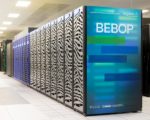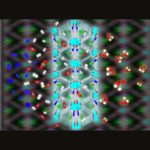By supercomputing standards, Argonne National Lab’s Bebop (stood up in 2017, 1.75 teraflops, bumped off the Top500 list after the June 2019 ranking) seems something of a second-tier player. But veteran, formerly non-Top500 systems like Bebop can still take a star turn, as shown by the results of a research team from Northern Illinois University […]
Pitt Researchers using HPC to turn CO2 into Useful Products
Researchers at the University of Pittsburgh are using XSEDE supercomputing resources to develop new materials that can capture carbon dioxide and turn it into a commercially useful substances. With global climate change resulting from increasing levels of carbon dioxide in the Earth’s atmosphere, the work could lead to a lasting impact on our environment. “The basic idea here is that we are looking to improve the overall energetics of CO2 capture and conversion to some useful material, as opposed to putting it in the ground and just storing it someplace,” said Karl Johnson from the University of Pittsburgh. “But capture and conversion are typically different processes.”





